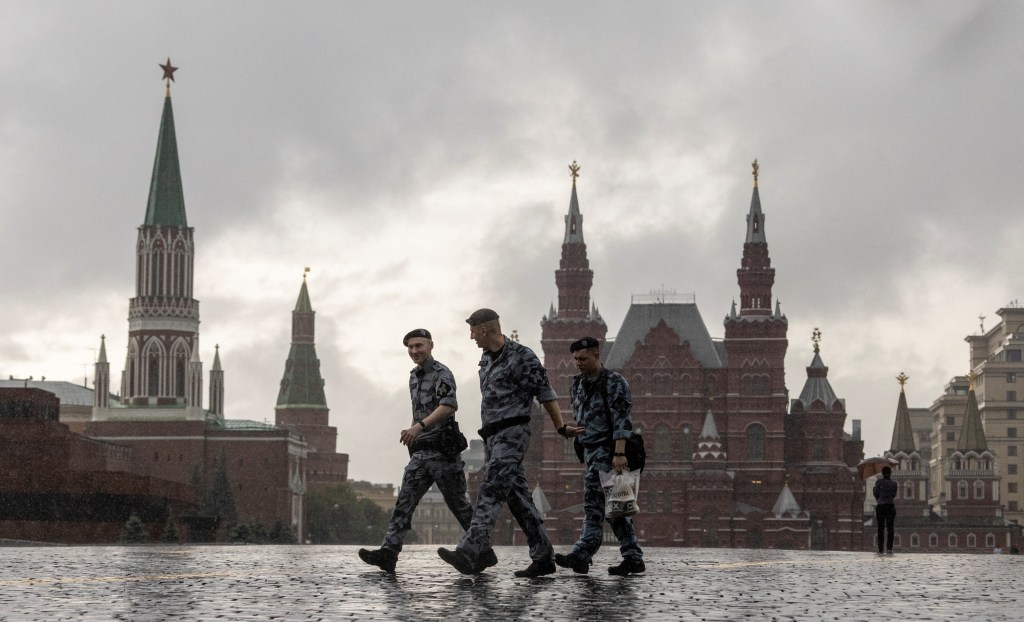Russia’s months-long jailing of journalists Evan Gershkovich and Alsu Kurmasheva — released on August 1 as part of a prisoner exchange — was one of the most blatant illustrations of Russia’s muzzling of the press in the wake of its February 2022 full-scale invasion of Ukraine.
While practicing journalism in Russia has long been difficult, new analysis published Thursday by the Committee to Protect Journalists (CPJ) has found the government has stepped up efforts to quash the work of the media by passing new anti-press laws, amending others, and expanding censorship efforts.
The war has precipitated what a representative of the now-shuttered Russian Journalists’ and Media Workers’ Union (JMWU) — speaking anonymously due to security concerns — calls the “biggest press freedom crisis in Russia’s recent history.”
Advocates estimate that hundreds of Russian journalists have fled into exile, where some continue to face transnational repression such as arrest warrants and jail terms in absentia. Those who remain are under heavy scrutiny as independent reporting hangs on by a thread.
Read CPJ’s analysis of Russia’s crackdown on reporting about its war in Ukraine.
- Mexican crime reporter Alejandro Martínez Noguez killed while under police protection
- Journalist shot, 2 detained as Venezuela cracks down on election protest coverage
- CPJ urges Bangladesh to protect journalists as protests oust PM
- Taliban suspends broadcast licenses of 14 media outlets in Afghanistan
- Pakistani journalist in hiding after police raid his home over protest reports
- Belarusian court sentences 2 journalists on extremism charges
- Russia’s YouTube slow down another blow to independent reporting
- Russia sentences journalist Dmitry Kolezev to 7 ½ years in absentia on ‘fake’ news charges
This week, escalating protests and riots in Bangladesh, Nigeria, and the United Kingdom have underscored the critical need for journalists to be prepared to manage risks they may encounter while reporting on the ground.
Following reports that dozens of journalists were assaulted, harassed, and detained while covering cost-of-living protests in Nigeria, CPJ called on authorities to investigate attacks on the press.
Protests and other crowded gatherings are dynamic situations that can quickly turn dangerous or violent. Covering protests and civil unrest may result in the surveillance, arrest, and targeted attacks of journalists.
CPJ has compiled a set of resources to help journalists anticipate and plan for some of the risks involved with covering protests, civil unrest, and other unpredictable crowds. The resources include tips for preparation, physical and digital safety, and personal protective equipment.
Read CPJ’s resources for journalists covering protests.
- In memory of journalist Ismail Al-Ghoul, Gaza City’s voice to the world — Mohammed R. Mhawish, +972 Magazine
- Angola: Criticism of the state is a right, not a crime — American Bar Association Center for Human Rights
- ‘It is a joyous day’: Wall Street Journal reporter Evan Gershkovich freed in a prisoner swap with Russia — Tom Jones, Poynter
- Venezuelan journalists covering post-election protests outside capitals more vulnerable to attacks and threats — César López Linares and Katherine Pennacchio, LatAm Journalism Review
